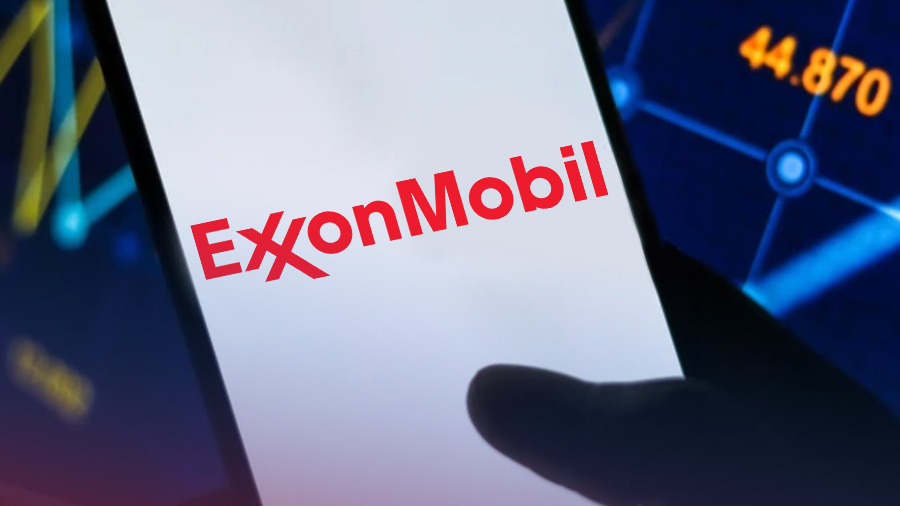Markets:
The major stock indexes flipped early losses into an afternoon rally Friday after the U.S. jobs report showed a stronger than expected labor market alongside slowing wage gains. Employers added 336,000 jobs in September, the strongest gain since January and up sharply from the previous month's upwardly revised 227,000 gain. Prices of stocks and bonds initially fell sharply on the news, but both markets rebounded, as the increase in average hourly earnings was modest and job gains may have been distorted by seasonal adjustments. U.S. Treasury yields dropped from session highs but still ended higher for the week, with the benchmark 10-year note jumping 20 basis points to 4.78% and the 30-year yield climbing 24 basis points to 4.94%, the highest level since September 2007. Friday's big stock market move secured weekly gains for the major indexes, with the S&P 500 snapping a four-week losing streak to finish 0.5% higher, while the Nasdaq Composite gained 1.6%.
News:
Exxon to acquire Pioneer Natural Resources: Shares of Pioneer Natural Resources (PXD) surged by 10.5% on Friday, becoming the top-performing stock in the S&P 500, driven by reports of Exxon Mobil (XOM) being in advanced discussions to acquire the shale drilling company for a reported $60 billion. If the deal goes through, it would mark Exxon Mobil's largest acquisition since its purchase of Mobil Oil for $81 billion in 1999. While reports suggest a potential agreement could be reached in the coming days, there remains uncertainty as to whether both parties will finalize the deal. This acquisition would enable Exxon Mobil to bolster its presence in the Permian Basin, the most prolific oil-producing region in the Western Hemisphere, with Pioneer ranking as the third-largest producer in this region, trailing behind Chevron and ConocoPhillips. The news of this potential acquisition drove Pioneer Natural Resources' shares into positive territory for the year, while Exxon Mobil saw a 1.7% decline in its share price on Friday. The deal reflects Exxon Mobil's strategic move to expand its operations and assets in the Permian Basin, a critical region for oil production, as it seeks to position itself for long-term growth and competitiveness in the energy sector.
Source.
Weight-Loss Drugs Impact Coca-Cola and Pepsico Shares: Shares of beverage giants Coca-Cola (KO) Co. and PepsiCo (PEP) Inc. experienced a significant drop during the week, with declines of 5% and 5.3% respectively. The fall is attributed to the rising consumer usage of weight-loss medications such as Novo Nordisk's Ozempic, and Eli Lilly’s Mounjaro, according to John Furner, U.S. CEO of Walmart (NYSE:WMT) Inc. He noted a marked decrease in the purchase of high-calorie groceries by customers using these drugs, which has led to an overall reduction in shopping basket sizes. Analysts at Morgan Stanley have predicted that this trend will prompt substantial shifts in the food and beverage industry, requiring product modifications to cater to evolving consumer preferences. The weight-loss medications mimic the effects of GLP-1, a gut hormone that regulates blood sugar levels and suppresses appetite. Meanwhile shares of Novo Nordisk and Eli Lilly are up more than 37% and 54% year to date.
Source.
Rivian Disappoints with Guidance and Fresh Fund Raise: Rivian issued disappointing guidance late Wednesday and announced plans to raise more funds just days after the electric truck maker said it had delivered more units than expected in the third quarter. The stock was falling in early premarket trading. After the market had closed, Rivian said sales in the current quarter would be slightly lower than analysts estimated. It also said it would issue $1.5 billion in convertible notes—debt that can be turned into shares, which has the potential to dilute the holdings of current owners. Rivian’s vehicles are tempting for American buyers of electric-powered pickup trucks that handle like sports cars. But they sell at about $80,000 on average, and developing them is expensive. The company is burning through cash—it sold trucks at an average loss of $33,000 in the second quarter. The stock has dropped more than 20% during the week. It has depleted about half of its $18 billion cash pile. Shares are down some 70% since it raised $12 billion in a 2021 initial public offering.
Source.
Weekly ETF:
The Vanguard Value ETF (VTV) is an exchange-traded fund that offers investors a diversified portfolio of well-established, large-cap companies known for their value-oriented characteristics. In essence, it is a collection of stocks that represent companies considered to be trading at favorable valuations relative to their fundamentals. VTV includes holdings in prominent companies such as Johnson & Johnson, Berkshire Hathaway, JPMorgan Chase, and Exxon Mobil, among others. These companies typically operate in sectors like healthcare, finance, and energy. By investing in VTV, individuals seek exposure to a selection of stable and mature businesses that are historically recognized for their consistency and strong fundamentals, making it an attractive option for those interested in long-term, value-oriented investing.
Earnings this week:
Tuesday, October 10 - PepsiCo (PEP), Neogen (NEOG), and AZZ (AZZ).
Thursday, October 12 - Fastenal (FAST), Delta Air Lines (DAL), Walgreens Boots Alliance (WBA), and Domino's Pizza (DPZ).
Friday, October 13 - UnitedHealth (UNH), JPMorgan Chase (JPM), Wells Fargo (WFC), BlackRock (BLK), Progressive (PGR), and Citigroup (C).
